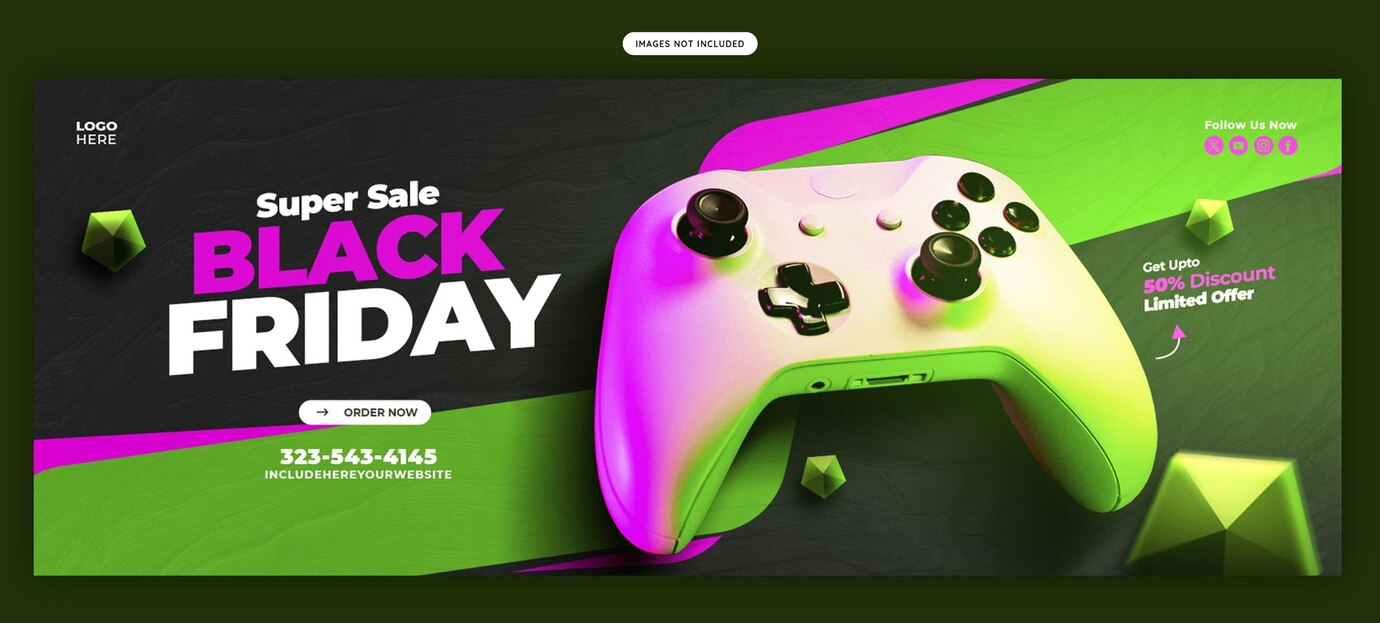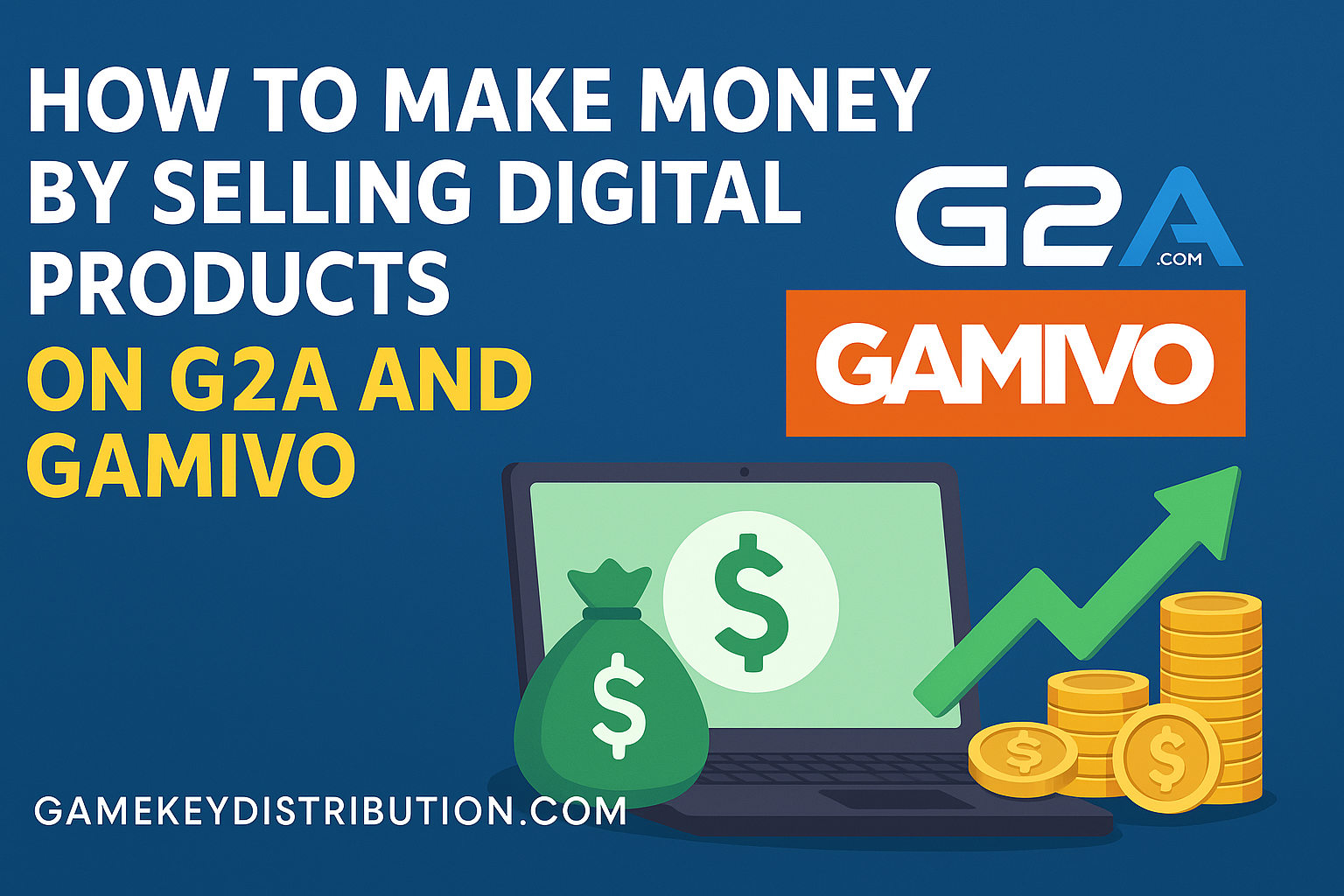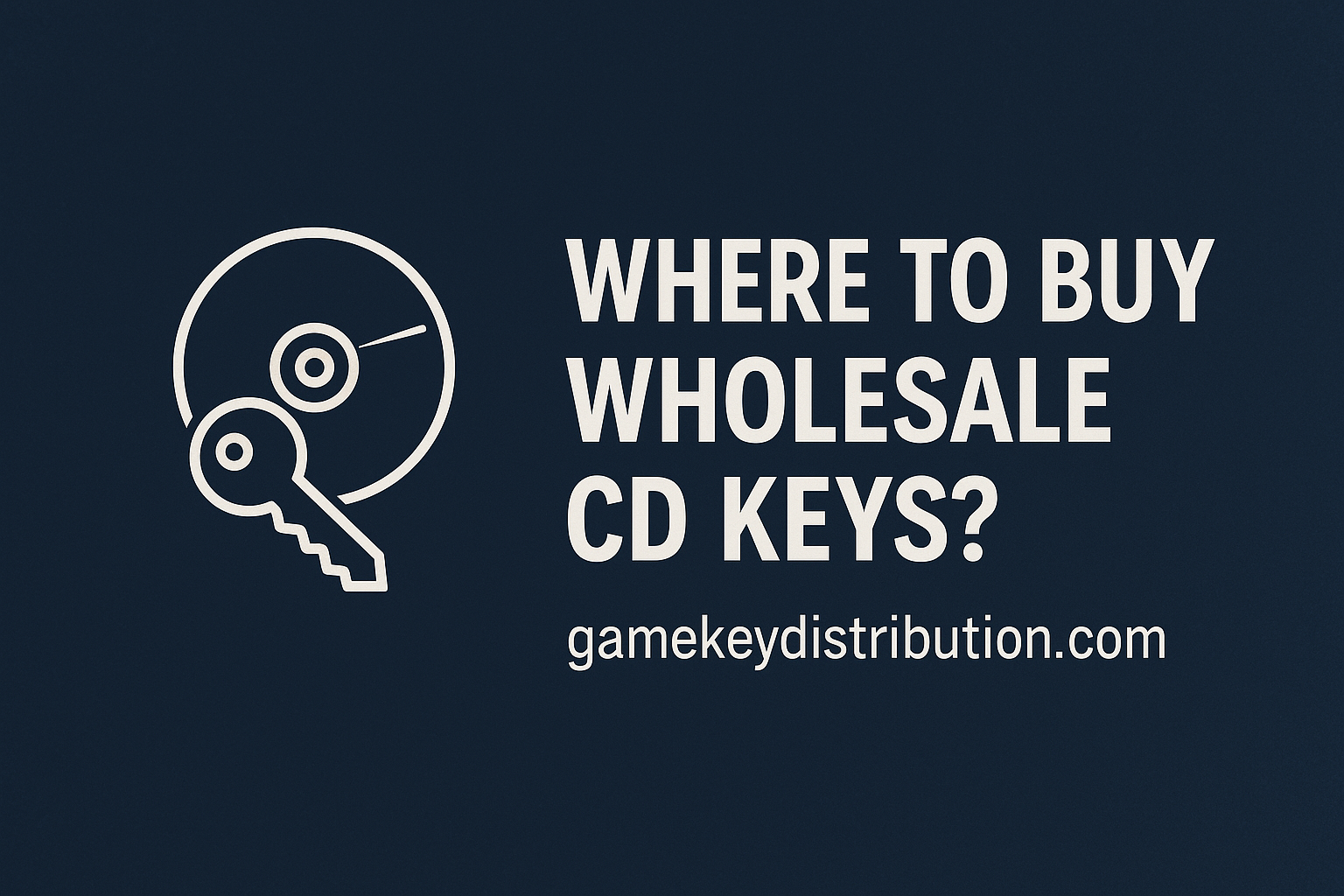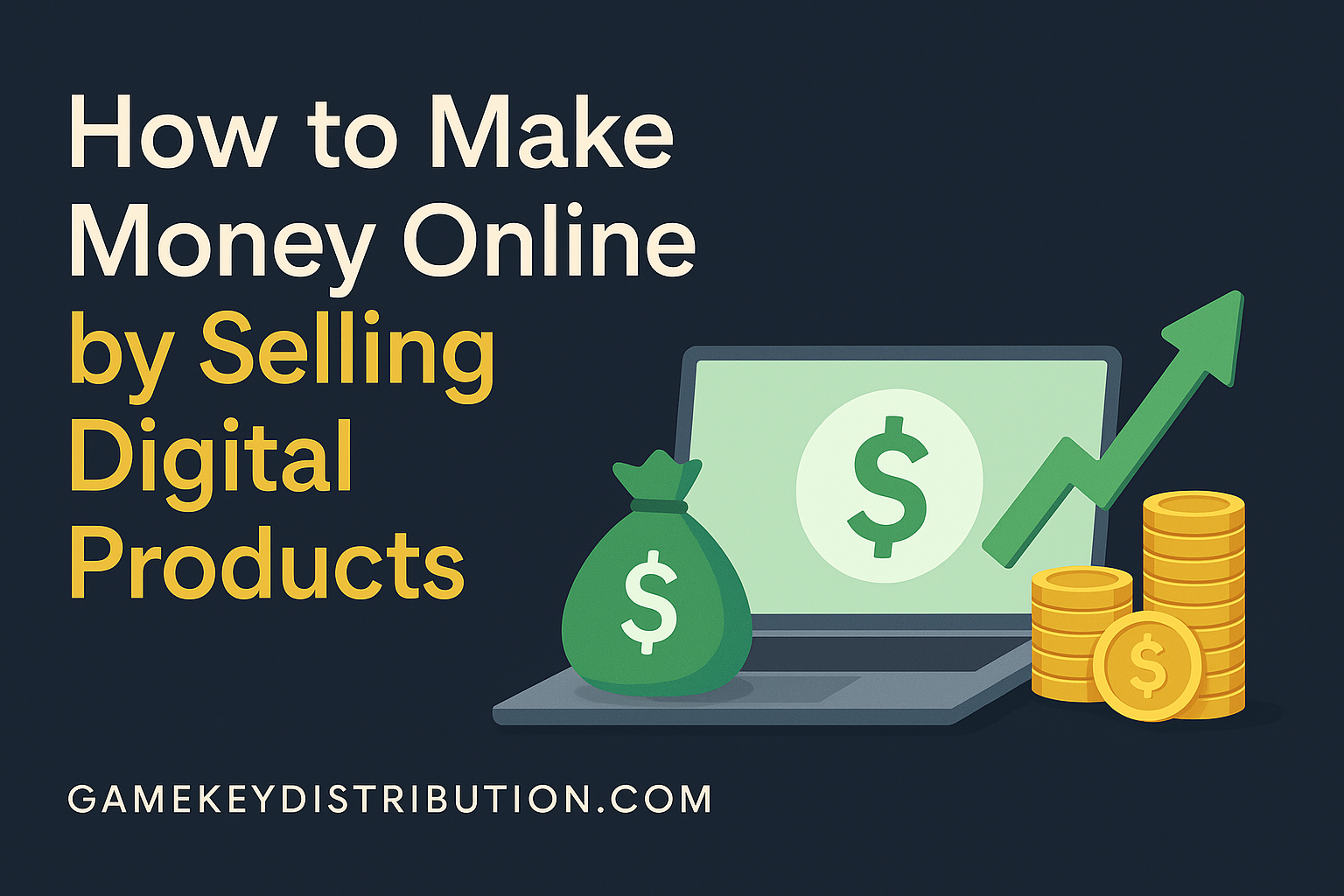In recent years, digital product sales — especially video games — have become one of the brightest stars in global commerce. Games are no longer just a source of entertainment; they’re also a serious source of income. Every day, millions of gamers purchase game keys from various platforms, creating a massive opportunity for entrepreneurs: sell games globally, with low costs and zero inventory risk.
Digital game sales are fundamentally different from traditional e-commerce. Since there's no physical product involved, you don’t have to deal with shipping, warehousing, or logistics. With just a few hours of research and the right steps, it’s possible to start earning from this booming market.
So how does the system work? Where can you sell? What are the profit margins? And is it really possible to make a living from this?
In this guide, we’ll walk through everything step-by-step — clear, practical, and actionable — for anyone ready to dive into digital game sales.
1. What Is Digital Video Game Selling?
Digital game selling means providing activation codes (also known as CD keys or game keys) instead of physical discs. These codes are redeemed on platforms like Steam, Origin, Ubisoft Connect, Epic Games, Xbox, PlayStation, and more. Once a customer activates the code, the game is downloaded and ready to play instantly.
This model offers significant advantages. Sellers avoid the hassles of shipping or managing stock. Buyers receive their games within seconds. Especially during sales or by leveraging regional price differences, sellers can secure impressive profit margins.
Another major reason behind the rise of digital sales is instant gratification. Gamers don’t want to wait days for a physical product — they want to play now. That’s why digital storefronts are outpacing physical stores rapidly.
2. Where Can I Source Games?
Finding trustworthy suppliers is the cornerstone of a successful digital game business. The cheaper and more reliable your source, the better your profit margin. Here are the main sourcing methods:
Global Wholesale Platforms
There are international B2B platforms that offer game keys in bulk. Access usually requires verification or business credentials. These sites are reliable and offer fast, automated delivery for resellers.
Direct Publisher Partnerships
If you're operating at a larger scale, you may be able to establish direct deals with publishers or official distributors. These relationships typically require proof of volume and credibility but offer the best long-term returns.
Bundle and Deal Sites
Some websites offer limited-time bundles or flash deals. Buying games in bundles at a deep discount and reselling them individually can result in substantial profits. Timing and strategy are key here.
Pro Tip: Always ensure your keys are legal and legitimate. Selling stolen or grey market keys can destroy your reputation — and your business.
3. Where Can I Sell Game Keys?
Choosing the right platform to sell on will make or break your business. Some sellers prefer owning their own store, while others leverage large marketplaces. Each method has its pros and cons.
1. Build Your Own E-Commerce Store
Having your own branded website means no commission fees, full control over your marketing, and access to customer data. You can create long-term customer loyalty and position your store however you like.
While it may require some technical setup and initial investment, the profit potential is much higher in the long run.
2. Use Marketplaces (Amazon, eBay, etc.)
Selling on Amazon or eBay is a quick way to get started. These platforms already have millions of daily users, and you can tap into their traffic from day one. But beware — commissions can eat up 10% to 20% of your revenue, and competition is fierce.
3. Sell via Communities (Discord, Reddit, Social Media)
Gamers hang out on Discord, Reddit, Telegram, and social media. These platforms are great for niche targeting. You can build a loyal customer base with personal interaction and strong service. However, this approach often lacks automation, so expect more manual work.
4. What to Watch Out For
Digital game selling might seem simple, but ignoring key details can lead to refunds, bad reviews, or worse. Here are the non-negotiables:
Licensing and Legitimacy
Only sell keys that are legally acquired. Avoid anything shady. Your reputation — and possibly your legal standing — depends on it.
Region Locks
Some keys are restricted to specific countries or regions. A European key might not work in Asia, for example. Always mention region restrictions clearly in product listings.
Refund Policy
Once a key is redeemed, it can't be revoked. That's why clear refund and return policies are essential. Be transparent, and protect both yourself and your buyers.
5. How Much Can I Earn?
Income from digital game sales varies widely based on your suppliers, marketing, and business scale. But here’s a general breakdown:
Typical Profit Margins
- New releases: 5% – 15% profit (high volume, low margin)
- Bundles or deal-based resales: 20% – 50% profit
- Niche or older games: Up to 30% or more (less competition)
Estimated Monthly Earnings
- Beginner (1–2 sales/day):
Revenue: $200 – $500
Profit: $100 – $300 - Intermediate (10–20 sales/day):
Revenue: $2,000 – $5,000
Profit: $1,000 – $2,500 - Advanced (50+ sales/day):
Revenue: $10,000+
Profit: $4,000 – $8,000
Remember, consistency matters. SEO, content, advertising, and good customer service all contribute to scaling up your income.
6. How to Get Started
If you're ready to jump into digital game selling, here's how to build your foundation the right way:
1. Define Your Starting Budget
You can begin with as little as $100–$500. This usually covers:
- Initial game stock
- Website/domain setup
- Basic marketing costs
The more you invest, the faster you can grow — but small beginnings are perfectly valid.
2. Identify Your Target Audience
Who are you selling to? PC gamers? Console users? Indie game lovers?
Your product selection and communication style should align with your audience’s interests and behavior.
3. Use Secure, Global Payment Options
Offer flexible payment methods like PayPal, Stripe, crypto, or credit cards. Fast delivery and smooth checkout experiences build trust — and loyalty.
Some platforms allow automatic key delivery. This saves time for both you and your customers.
4. Start SEO and Marketing Early
Even before listing your first game, lay your SEO groundwork. Optimize product titles, descriptions, and categories. Create helpful blog content to attract organic traffic.
Social media, email lists, and community engagement also help establish your brand and drive long-term growth.
Final Thoughts: Can You Really Make a Living Selling Games?
Absolutely — but like any business, success doesn’t happen overnight.
Digital game sales offer low risk, high potential, and global reach. For entrepreneurs who are disciplined, customer-focused, and strategic, this is one of the most exciting business models of the decade.
If you build a reliable supply chain, deliver excellent service, and take your time to grow organically, digital game sales can evolve into a consistent and even passive income stream.
Bottom line:
Yes, you can make money selling video games — and if you do it right, you might just love every minute of it.





